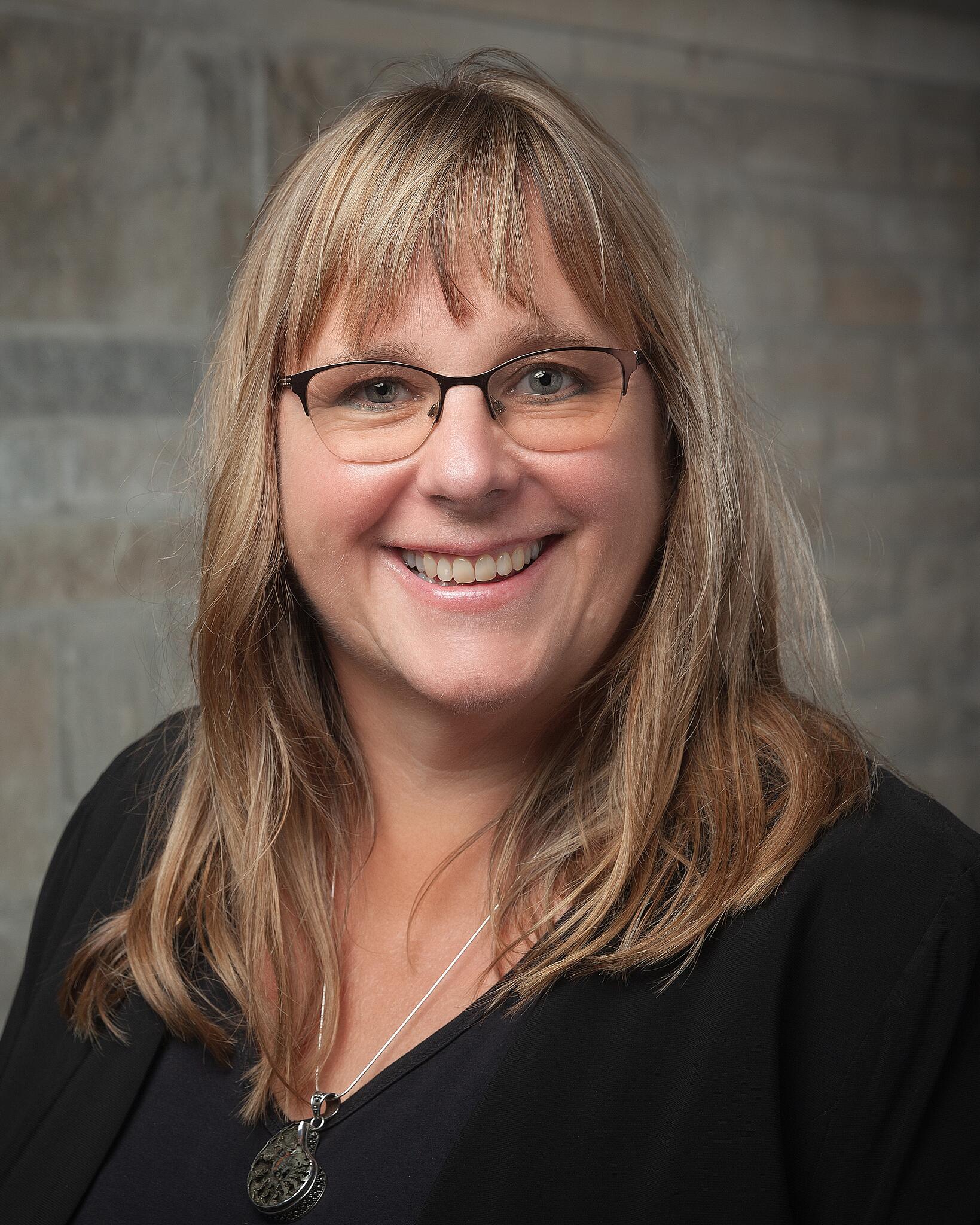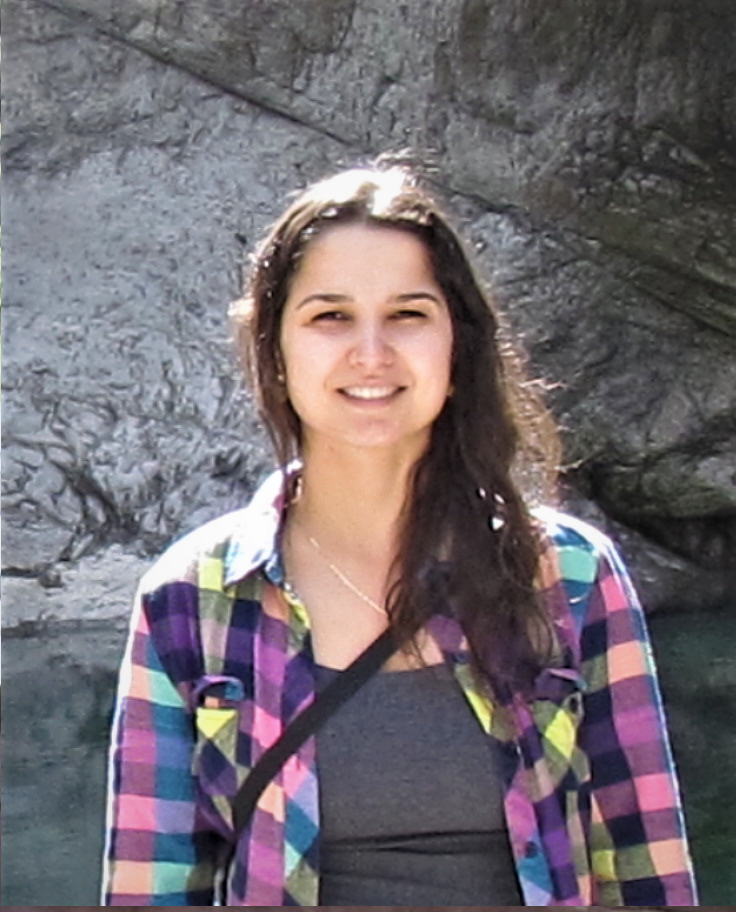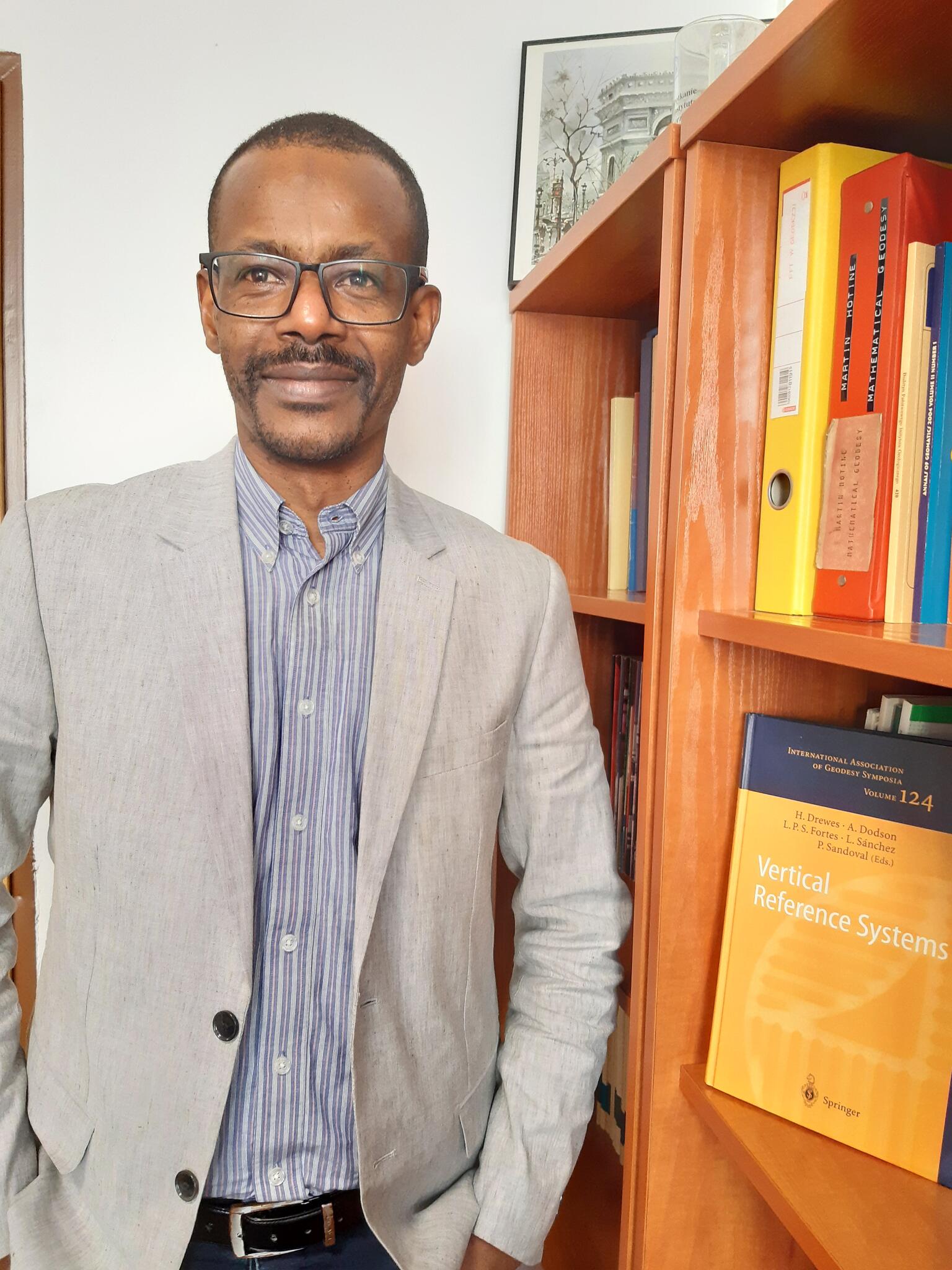Faculty Member Receives WIM Trailblazer Award

Congratulations to Dr. Jean Hutchinson, on receiving the Trailblazer Award from Women in Mining Canada (WIM).

University Wide
MyQueensU - SOLUS, MyHR and more Office 365 Outlook on the web - Email onQ Library eReserves Web ProxyFaculty / School Portals
Business - Program Portals Education - Faculty & Staff Portal Grad Studies - Faculty & Staff Portal Health Sciences - Elentra Law - QLaw Change password / Manage NetID
Congratulations to Dr. Jean Hutchinson, on receiving the Trailblazer Award from Women in Mining Canada (WIM).
Date
Friday February 16, 2024Location
Stirling A.png)
Talk Title: Lava Planets
Date: Friday, February 16
Time: 1:30 pm - 2:30 pm
Location: Stirling A
Coffee and treats will be served.
Abstract:
Three decades of searching have revealed that planets are abundant in the Galaxy, but most are unlike those found in the Solar System. Lava planets are among the strangest exoplanets discovered so far. Their bulk density suggests an iron core surrounded by a rocky mantle, like Earth. But they orbit so close to their star that they are tidally locked into synchronous rotation: their permanent dayside is hot enough to melt —and vaporize— rock, while their nightside is expected to be cold and airless. Until lava planets were discovered, nobody had imagined the wild geophysics of such an asymmetric world: supersonic silicate winds, and a permanent, hemispheric magma ocean. I will review current scenarios for the formation, interior structure, and atmosphere of lava planets, and how we are pushing back the boundaries of our ignorance with numerical simulations and astronomical observations.
Date
Tuesday March 5, 2024Location
Join us at PDAC to connect with your fellow alumni, as well as faculty, staff and students from the department!
Date: Tuesday, March 5, 2024
Time: 4:30 pm - 7:00 pm
Location: MTCC, North Building, Constitution Hall Room 105
Date
Thursday February 8, 2024Location
Miller Hall, Room 201Talk Title: The Potential for Carbon Sequestration in the Precambrian Rocks of Eastern Ontario
Date: Thursday, February 8
Time: 2:30 pm - 3:30 pm
Location: Miller Hall, Room 201
Coffee and treats will be served.
Abstract:
In the world-wide attempt to reduce anthropogenic carbon emissions, Carbon Capture, Utilization and Storage (CCUS) has become a leading contender as a potentially substantial part of the solution. CCUS is not based on mature science and engineering as yet, and there are many challenges in each aspect, although there are pilot projects in carbon capture and storage underway around the world with several in Canada leading the way. From a geological perspective, it is the “storage” part of the concept that we in Canada have strength in, with substantial potential in Alberta and some in Saskatchewan for CO2 sequestration in depleted oil and gas reservoirs, and more widely in deep, saline aquifers. There are also locally large sources of CO2 emissions in these provinces. In eastern Canada, we are significantly limited in potential storage capacity to the Cambrian sandstones of southeastern Ontario, and the off-shore oil and gas reservoirs in the Jeanne d'Arc Basin. A very attractive but unheralded option is the injection of CO2 into mafic Precambrian rocks widely present in the Canadian Shield which has been shown to dissolve the minerals and form carbonate rock down the flow path, resulting in (semi) permanent removal of the carbon dioxide. As this has only been studied in small-scale lab experiments and a few field scale pilots (CarbFix in Iceland being the most well-known), there is a lot to be learned before this is likely to be a viable commercial option. In the present talk, a research program initiated last summer at the Kennedy Field Station near Tamworth and in the laboratory at Mitchell Hall will be described with a focus on what is planned for the next three years. Interest in this work has been profound, and includes traditional local industries such as Lafarge, the power generation facilities such as the Lennox Plant in Greater Napanee, and Enbridge, who see pipeline opportunities with the concept
Biography:
Kent Novakowski is a Professor of Civil Engineering in the Stephen J.R. Smith Faculty of Engineering and Applied Science and a Special Advisor to the Vice Principal Research at Queen’s University, Kingston, Ontario. Dr. Novakowski obtained his PhD in Hydrogeology from the University of Waterloo in 1992. He has had a widely varied career as a researcher and academic with employment in the Canadian Nuclear Fuel Waste Program in Ottawa, the National Water Research Institute in Burlington, Brock University, and then the Department of Civil Engineering at Queen’s University, as Associate Professor, Professor and Department Head. Dr. Novakowski has specialised as one of only a few hydrogeologists across the globe with extensive experience in the hydrogeology of both crystalline and sedimentary fractured rock. He is a Fellow of the Canadian Society of Civil Engineers, and the Engineering Institute of Canada. In 2013, he won the Engineering Excellence Medal given by Professional Engineers Ontario. His current directions of research are focussed on the fundamental processes of heat transport in fracture networks and the potential for carbon mineralization in the Precambrian rocks of the Canadian Shield.
Date
Friday January 26, 2024Location
Miller Hall, Room 201
Talk Title: Ecohydrological coupling (and decoupling): transpiration and streamflow water sources
Date: Friday, January 26
Time: 10:30 am - 11:30 am
Location: Miller Hall, Room 201
Coffee and treats will be served.
Abstract: Forests cover about 30% of the world’s land surface and provide drinking water for billions of people. Despite their significance, forest ecosystems face rapid climate change and anthropogenic disturbances while we have little understanding of those impacts of long-term water availability and forest water use. Forest water use has been investigated through paired watershed studies. While providing insights at a watershed scale, paired watershed studies are a ‘black box approach’, offering limited understanding of the underlying mechanisms driving forest water use, transpiration sources, and their effects on streamflow. Natural tracers of water (stable isotopes of hydrogen and oxygen) provide unique opportunities to investigate forest water use mechanistically, providing understanding of transpiration source water and the age of transpiration. In this talk, I will provide new insights gained using stable isotopes regarding the hydrological coupling and decoupling between transpiration source water and streamflow. Through a synthesis of controlled experiments and field investigations across diverse biomes, I will emphasize the significance of incorporating tree hydraulic traits, storage dynamics, and topography in the exploration of forest water use. This holistic approach promises to enhance our comprehension of the intricate relationships governing water dynamics within forest ecosystems.
Bio: Magali Nehemy is an assistant professor in the School of the Environment at Trent University. Her general research interests centre on water sustainability in the context of forest water use. Her specific research interests focus on ecohydrology and field-based process descriptions of how forests exploit subsurface water storage. She works in boreal and temperate systems in Canada, New Zealand, and tropical systems in Brazil to understand the connectivity between water sources for transpiration and streamflow at different spatial and temporal scales. Her research also focusses on developing new field-based approaches for understanding transpiration phenology and isotopic tracing techniques. This research breaks down the disciplinary boundaries between hydrology, soil science and ecophysiology. Nehemy also co-teaches a national level graduate course in "Isotope Tracers in Catchment Hydrology" open to any graduate student.
Date
Tuesday January 23, 2024Location
Bruce Wing, Room 352
Talk Title: Geodetic observations for the determination of Essential Climate Variables and monitoring hydrological changes
Date: Tuesday, January 23
Time: 10:30am-11:20am
Location: Bruce Wing, Room 352
Coffee and treats will be served.
Abstract: The Global Climate Observing System (GCOS) defines fifty-five Essential Climate Variables (ECVs) as variables that are critical for characterizing the climate system and its changes. Geodetic observations can play an essential role in the determination of these ECVs. The first part of this presentation provides an overview concerning the contribution of geodetic techniques (e.g., terrestrial and satellite gravimetry, Global Navigation Satellite Systems (GNSS), satellite altimetry, interferometric synthetic aperture radar (InSAR)) for the determination of ECVs. The second part of this presentation focuses on the use of space geodetic data for studying hydrological changes and their correlation with climate indices. As a case study, the area of Sudan (an area characterized by heterogeneous terrestrial hydrological data) is considered. The usefulness of space geodetic data for monitoring hydrological changes over this area is addressed. Moreover, the relation between these hydrological changes and sea surface temperature from both the El Niño–Southern Oscillation (ENSO) and the Indian Ocean Dipole (IOD) climate indices is discussed.
Bio: Dr. habil. Walyeldeen Godah is an associate professor at the Center of Geodesy and Geodynamics, Institute of Geodesy and Cartography, Warsaw, Poland. He obtained a MSc. from the Royal Institute of Technology (KTH), Stockholm, Sweden, a PhD from Warsaw University of Technology (WUT), Warsaw, Poland, and a Habilitation (i.e. Doctor of Science) from University of Warmia and Mazury (UWM) in Olsztyn, Poland. Since February 2023, he is a visiting professor at Queen's University, Kingston, Ontario, Canada. Godah’s research focuses on physical geodesy, satellite gravimetry, positioning/navigation, gravity field modelling, geodynamics, height systems, and engineering surveys.
Date
Tuesday January 23, 2024Location
Geological Sciences and Geological Engineering Vancouver 2024 Alumni Reception
Date: Tuesday, Jan. 23, 2024
Time: 5-8 pm
Location: The Headframe Room at TECK Resources Ltd.,
Suite 3300, 550 Burrard Street, Vancouver, B.C.
Please RSVP to geolalum@queensu.ca if you plan to attend. Your name must be on the guest list in order to gain access to the building.
We look forward to seeing you there!
Click to read through this year's issue of GeoNews!
Read about updates from the department, including awards, exciting projects, alumni updates, and more.
Congratulations to all Named TAship Award winners for Fall 2023!
Named TAship awards recognize a TA that has gone above and beyond in the classroom, lab, or in the field.